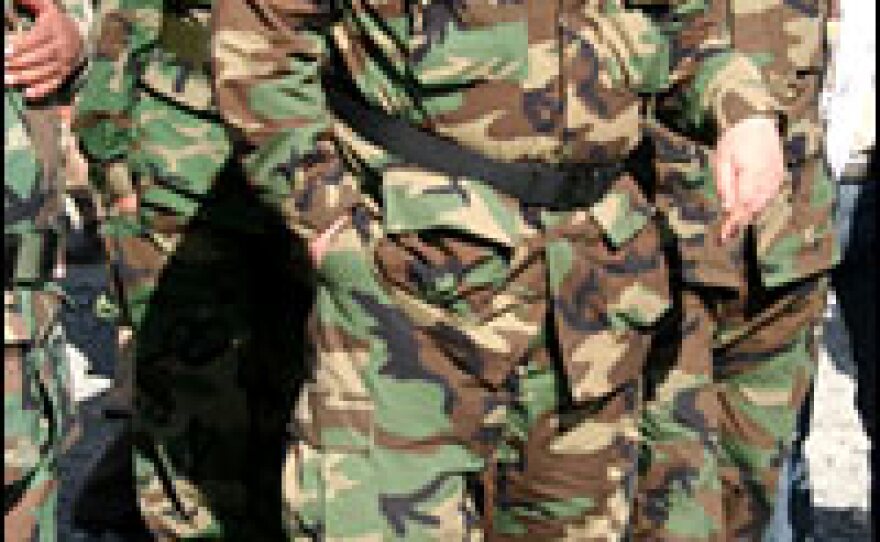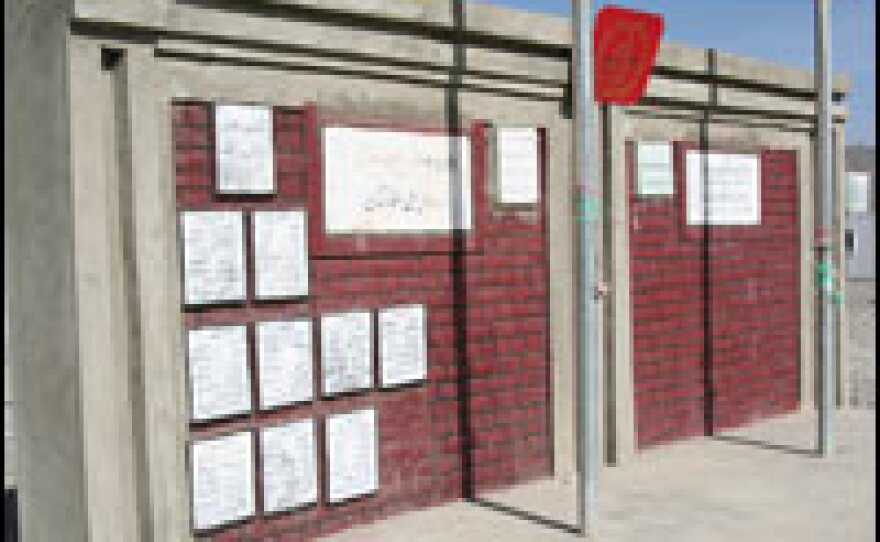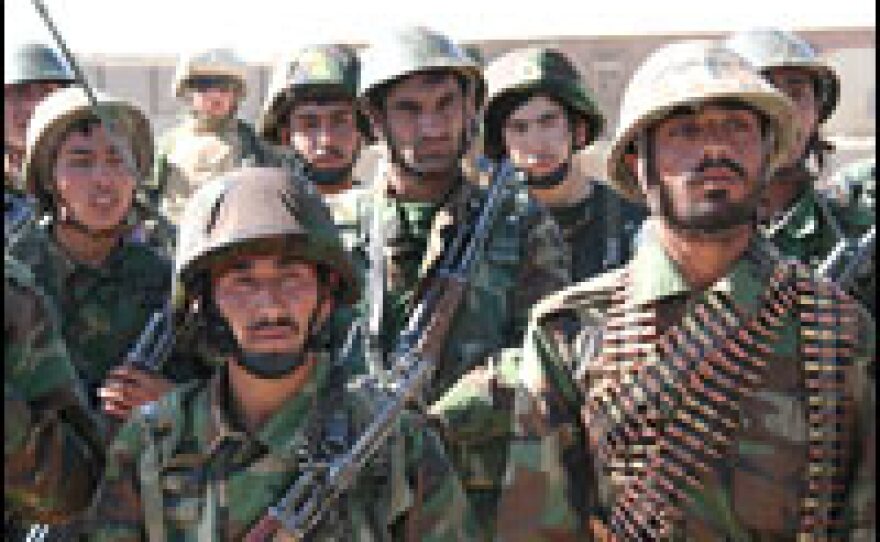

Afghan National Army soldiers based in the eastern Bermel district recently awoke to news of a Taliban ambush nearby. They quickly packed themselves in 10 pickups and rushed off to the battle.
One soldier forgot to put on his combat boots because he was so eager to fight.
When the three-hour battle was over, 22 Taliban had been killed. A U.S. Marine trainer embedded with the unit says the Afghans pointed out things he couldn't see.
"I've seen great maturation," Lt. Col. Scott Fosdol says. "They are enthused. It's one of their greatest battles so far."
Afghanistan's army is a bright spot among the country's emerging institutions. Soldiers are respected, and they are responding well to training. And -- unlike the police and the courts -- Afghanistan's army is the least-corrupt institution in the country.
It hasn't been easy.
Early on, ethnic differences hindered cohesive units. Today, those differences have been smoothed out. Lt. Col. Mohammad Fareed Ahmadi, who commands a battalion based in Panjwai, says he belongs to the "Afghan National Army. It's not Afghan Herat Army, it's not Afghan Kandahar Army. So this army belongs to all nation."
Ahmadi encountered deep cynicism from local residents when he arrived last summer to fight alongside NATO troops. Now, he has won the locals over by worshipping with them in the same mosques. And, he says, a few teenagers want to join up because they've been impressed with his unit's professionalism.
Still, the Afghan National Army is not ready to take over responsibility for defending the country. They still depend on NATO and coalition forces for fire and air support.
Gen. Abdul Rahim Wardak, who leads the army, says "there's no lack of sacrifice."
"All along we've been a warrior nation," he says. "If we're given the right equipment and proper training, we can do the job better than anybody else."
Copyright 2022 NPR. To see more, visit https://www.npr.org. 9(MDAzMjM2NDYzMDEyMzc1Njk5NjAxNzY3OQ001))







